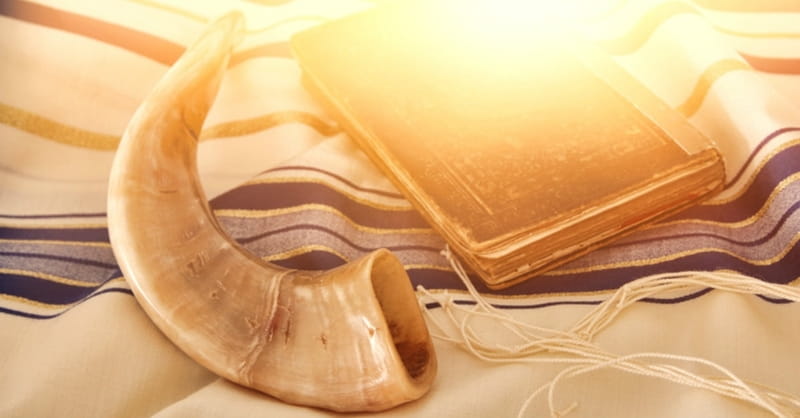By
As a Jew I am proud to be a part of a people whose lives are guided by a mix of biblical commandments and laws blended with traditions and customs that have been handed down from over the millennia through Rabbis, teachers and family. We are a diverse people who adhere to certain universally held truths all the while as we travel different paths guided by our particular practices and theology. We describe our faith as having branches, movements, or denominations that share much in common while identifying with many different observances. It is what you get in a religion that is not hierarchical but where rituals are determined by local clergy who decide how their congregational community should practice their faith.
Of the many things that help define Jewish practice, nothing is more identifiable than the holidays and festivals that appear on our calendar. All Jews, whether observant or not, recognize and understand the meaning of celebrations like Passover and Chanukah even if they do not participate in those special days. And the holidays that are most widely understood are Rosh Hashanah, the Jewish New Year which is followed ten days later by Yom Kippur, the end of a period of repentance. These observances, usually referred to as the High Holy Days have their own ritual practices that are known throughout the Jewish world and even among most of our non-Jewish neighbors and friends. The trumpet-like blasts of the Shofar, an ancient instrument made from a ram’s horn, is the iconic image and sound of the Jewish New Year and the Day of Atonement. The Shofar can be heard in every Jewish synagogue regardless of whatever else may set them apart.
We are on the cusp of the Jewish New Year of 5781. Many will approach this holy day in new ways this year because of the way in which COVID-19 has disrupted nearly every aspect of our lives. For so many Jews, remaining at home on Rosh Hashanah and Yom Kippur would have been unthinkable before the pandemic struck. But this year many Jews will be in prayer in their home sitting in front of a screen watching religious services on Zoom, Google Meet, streamed on YouTube or Facebook Live. Not having the chance to meet our friends and family in synagogue to wish them well and hope they are inscribed in the Book of Life for a sweet New Year will leave us feeling empty, incomplete and unfulfilled.
History teaches us that there have been countless periods when our practice of gathering together in the Synagogue has not been possible. Jews driven out of Spain in the 15th Century couldn’t gather communally to pray. Jews driven out of Russian villages because of pogroms had their religious practices denied. Jews in the death camps during the Holocaust certainly had no Shofar to listen to or Torah to read from.
During the past six months we have learned to make use of technology to link us together to meet, learn, teach, celebrate, mourn, be entertained and worship. We are an adaptive people and we will rely on the thousands of years when we were forced to unwillingly adjust our practices and our lives. But for all of the persecution and mistreatment suffered by the Jewish people we have learned that our work is never done. Our lives may have been put on hold but our faith has taught us that any unfinished business would eventually be completed.
In 1957 Allen Saunders, the American writer, journalist and cartoonist wrote that life is what happens to us while we are making other plans. Saunders taught us that we should all expect to have some unfinished business to deal with. How we deal with our unfinished business is what matters. We each have something we need to deal with or work on. We all have things that we have not yet done, dealt with, or completed. The causes of our personal unfinished business matters much less than the fact that we acknowledge that our spiritual, emotional or relational “to do list” has items yet to be checked off.
Many Jews circle Rosh Hashanah and Yom Kippur on their calendar as the time when they think they can complete their unfinished business. There are those who believe that all they have done or neglected to do throughout the year is a scorecard to be settled up with the traditional call for teshuvah, tefillah, tzedakah (repentance, prayer and righteous acts) to avert the severe decree. The notion of the High Holy Days being a once a year “get out of jail card” redeemed in exchange for confession of sin has always puzzled and confused me.
I grew up in a small New England town where my friends’ families were either Catholic or Jewish. I knew about the Catholic tradition of confession which could be offered as often or infrequently as the faithful felt so moved. Make the confession, get some instruction from the Priest and you were good to go. It was like hitting a big reset button for misdeeds. Jews, on the other hand, kept track of their sins and attended the Super Bowl of forgiveness on the High Holy Days when we offered our confession and hoped for a good outcome.
buy zoloft online
I’ve come to believe that those practices should leave the person of faith with more questions than answers. Chief among them is the presumption that accepting wrongdoing and promises to refrain from repeating them would be sufficient. I have never thought that was enough. Our tradition teaches that on Yom Kippur we are to seek out those we have harmed and try to make amends. I always wondered why we don’t work harder throughout the year to find those who we may have wronged or hurt and to try to resolve issues with others wherever and whenever possible. Yes, changes in behavior which promise to not repeat the wrongs are important. But it seems to me that every bit as important is to make amends with those we may have wronged.
That is the unfinished business that we should all consider completing. Waiting for a designated date on the calendar to take care of your unfinished business seems to me to be artificial or contrived in some way.
Many Jews follow the custom of asking a sort of blanket forgiveness to others for the errors of their ways. Some express their apologies more personally or intimately. I have always appreciated the message that has become popular in recent years.
To those I have wronged, I ask for forgiveness.
For those I may have helped, I wish I could have done more.
For the many I neglected to help, I am truly sorry.
To those who helped me, I am deeply grateful.
buy zyloprim online
The sentiment is nice but it feels like an imperfect substitute for the more direct, albeit difficult conversations we could consider having with those with whom we have some true unfinished business. No matter how we choose to communicate and no matter whether our request for forgiveness is accepted the responsibility is on us to take the first step. We are not responsible for our request for forgiveness to be accepted or rejected. Our responsibility is to offer it. We are all imperfect human beings leading imperfect lives and making imperfect choices and decisions. The extent to which the things we say and do have caused pain to others we should do all we can to express our regret to those we may have hurt or harmed whether willfully or unintentionally. The burden of carrying around the baggage of unfinished business weighs us down and slows our ability to move forward. This is not the time to deal with unfinished business simply because we are on the cusp of the Jewish New Year. I don’t believe in scheduling opportunities to do what is right. Every day is the right time to try and settle any unfinished business because it is the right thing to do for others and ourselves.
Stu Turgel is a broadcaster at RADIO PHOENIX, one of America’s largest internet-based community radio stations. He is also a blogger and a consultant providing philanthropy and nonprofit management services to charitable organizations. See more of Stu’s writings at The Phoenix File.







